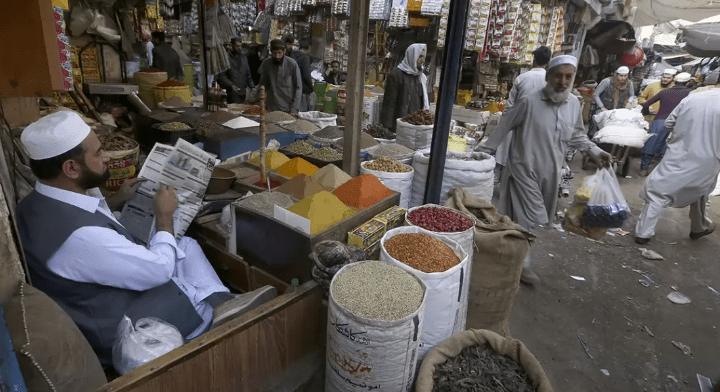
Cash-strapped According to the economic figures released by Finance Minister Ishaq Dar on Thursday, Pakistan’s economy had a miserable performance during the previous fiscal year, with a GDP growth rate of only 0.29% and spiraling inflation of over 29%.
At a packed press conference, Dar unveiled the Economic Survey 2022–23, beginning an annual tradition that begins one day before the budget for the next year. The study highlights the government’s economic successes over the year that ended on June 30 despite political unrest and unheard-of floods.
According to the records, “GDP growth in the preceding year remained at 0.29 percent, falling short of the target of 5%,” with corresponding growth rates of 1.55 percent in the agricultural sector, 2.94 percent in the industrial sector, and 0.86 percent in the services sector.
The report indicated that “all three sectors missed the targets, with the industrial sector contracting to 2.94% from the target of 7.1% growth.”
According to the poll, Pakistan saw inflation between July 2022 and May 2023 of 29.2%, compared to 11% during the same time previous year and far higher than the country’s objective of 11.5% for FY2023.
On the plus side, there was a significant rise in tax revenue, with the Federal Board of Revenue (FBR) reporting a 16.1% increase to Rs 5637.9 billion from July to April compared to Rs 4,855.8 billion the year before. The goal is to reach Rs 7,470 billion for the full year.
In a similar vein, the administration demonstrated improved performance in containing the current account deficit, which was reduced by 1% of GDP to 4.6 from 4.7% in the period from July to March, going from USD 3.4 billion to USD 13.7 billion.
According to the poll, the budget deficit was kept in check during the first nine months of the current fiscal year, falling to 3.6% of GDP from 3.9% during the same time previous year.
The former Imran Khan administration was accused by the finance minister of having economic issues that were made worse by the natural calamity of the floods and the global circumstances.
“Global pressure and floods were the main elements that made it difficult to meet goals. Given the conditions, I believe the present accomplishments are reasonable,” Dar added, noting that floods had cost the economy $30 billion.
The minister said that the 3.5% GDP growth target for the next year had been established by the administration. He stated that the government will propose various incentives in the budget tomorrow, including an increase in the aim for IT exports from the current USD 2.5 billion to USD 15 billion over the next five years.
In his speech, Minister of Planning Ahsan Iqbal defended the administration’s performance by asserting that 2022–2023 was a year of “force majeure” for the nation, but that things were changing as a result of the challenging choices the government had made.
Prior to that, the economic team headed by Finance Minister Dar met with Prime Minister Shehbaz Sharif and gave him a copy of the Economic Survey for 2022–2023. Sharif “commended” the team’s work during the previous year.
He said that despite the economic difficulties left behind by the previous administration and the extraordinary floods, the economic team’s contributions to the nation’s economy are valuable.
According to Prime Minister Sharif, the government would make significant investments in the agricultural and IT industries in the next budget. He said that top-notch seeds and cutting-edge farming equipment will be given to the small farmers.
He said that the upcoming budget will also include an expansion of the interest-free lending program for small farmers. He said that the government would provide rewards to farmers who produced more grain per acre.
In a nation that has seen military coups and the overthrow of elected administrations three times since independence, the economic position has never been more dire.
Cash-strapped Since many years ago, Pakistan’s economy has been in a fast slide, putting enormous pressure on the underprivileged masses via unbridled inflation and making it almost difficult for a large number of people to make ends meet. After the disastrous floods of last year, which claimed the lives of more than 1,700 people and resulted in enormous economic losses, their problems multiplied.








